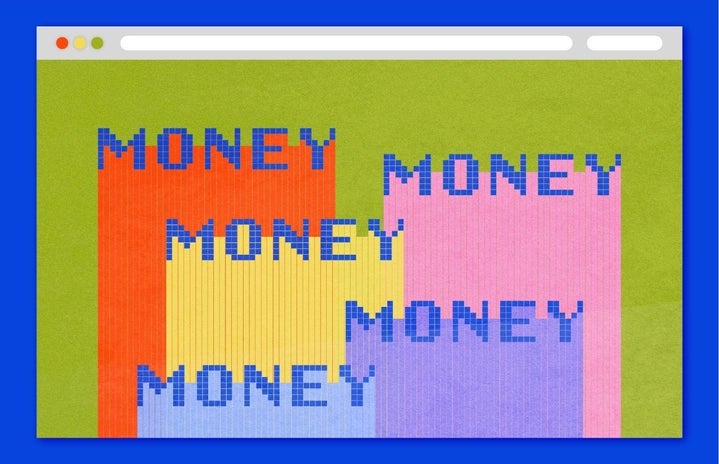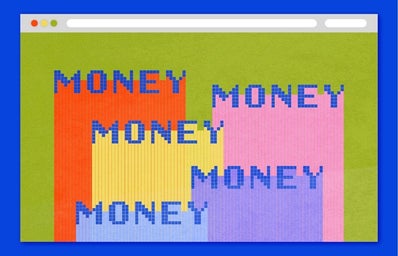Disclaimer: The author is not a financial professional. Please do your own research before making financial decisions.
A few summers ago, I was getting ready to study abroad, and when I was at the bank ordering some money in the right currency for the country I would be in, the person helping me told me I was eligible to apply for a travel credit card. Keep in mind, I’d never had a credit card under my own name before. I had only ever been an authorized user, which meant that I could make purchases, but I wasn’t responsible for the payments. This a good way to start building up your credit, but there are some things authorized users can’t do, like check the balance of the card.
That day at the bank, I decided to get a credit card to continue building my own credit and give myself more control and responsibility when it came to my financials. Applying for the travel credit card also made sense because it would allow me to use it in another country without any extra charges, which is what would have happened if I used my debit card in a different country.
The person that worked at the bank that was helping me figure out if I should get a credit card made it sound like a great idea at the time. They said that if I didn’t use it and it was paid off, there would be no payment required, and the interest wasn’t too bad.
Instead of going home and doing my own research about this major financial decision I was going to make, I took the advice of someone that was biased and had something to gain from me getting the credit card.
These are all things I wish we learned about when we were younger and in school. Hopefully you all learn something new and become inspired to teach yourselves more about your own financials. Just like I should have done my own research before getting a credit card, you should all do your own research before making any financial decisions.
What’s a credit score, and what does it effect?
Credit score. It’s a phrase that I always heard in commercials growing up and then later from my parents when I went with them to get a new family car, but nobody had ever really explained what a credit score really was.
I think that a lot of words and phrases connected to money are never really explained in detail to us, and then, at a certain point in our lives, it feels like we should already just know what they mean and like we can no longer ask.
A credit score is influenced by a number of things like the amount of money you owe, your history of how you’ve repaid your debts and how long you’ve had a credit history. Your credit score can be anywhere from 300-850, and there a few different scoring models that can calculate your it. This number helps to tell people how much of a risk it would be to give you a loan or credit card.
A credit score is important in this country because it is what banks look at when you apply for loans or credit cards. It’s also what they use to influence the terms and conditions they offer you.
This is a very basic explanation of what a credit score is and what it can influence, but it is one small thing that you should know about because it can influence a lot of the financial opportunities open to you in the future.
Should I get a credit card?
I recently paid off my first and only credit card. I was shocked when after I paid it all off I still had a $5 charge I had to pay the next month. I called my bank and asked them why I still had to pay something even though I had just paid off my card in full. I was told that there would be a charge until I had everything paid off in full for two months in a row.
I felt like this is something I should have known and felt kind of stupid for calling and being confused about this, but we really don’t get taught much about credit cards or money in school. We should, though, because this is lack of knowledge can lead to people making financial mistakes.
I wish I had known more and done more research before deciding to get a credit card. There are couple of reasons why you should get a credit card, but there are also some for why you shouldn’t. If you want to build your credit, already have good credit, you want to buy a larger purchase or you’re planning a trip somewhere, getting a credit card might be a good idea. Some reasons to consider not getting a credit card are if you know you’ll spend more than you earn, don’t have a set income or way to pay off your credit card or if you’re an impulsive spender.
Credit cards can seem scary, but they don’t have to be. If you are responsible with your credit card, it can actually be a pretty great thing to have. Credit cards can earn you cash back, protect you from fraud, are accepted all around the world, and they can offer you reward programs. You know yourself best, and after weighing the pros and cons that come with credit cards, I encourage you to make a decision that is best for you on whether or not to get one.
Now to talk about the scariest financial decision for college students: student loans
Whenever I’ve heard people talk about student loans, they always sound so scary and like they’re a terrible decision. I’ve been fortunate enough to not need to look into what exactly it means to take out student loans or how they work.
After doing some research, this website does a great job of breaking down and explaining student loans, and it left me with a better sense of how they work. There are two types of loans, federal (like FAFSA) ((there are also three types of federal loans)) and private loans from banks. For both types of loans, you start off with an application that determines if you’re approved and for how much money. Then you learn about repayment terms, and then the money is reimbursed to your school to cover your tuition.
Taking out student loans is common in the U.S. today. The total student debt in the U.S. in 2019 reached $1.46 trillion. But, just because student loans are common doesn’t mean that they’re right for everyone. Like credit cards, and what seems like everything else, you’ll have to pay interest on your student loans. Working while going to school, applying for scholarships and budgeting can help you pay off any debts you acquire faster, but it is a big commitment to take out student loans. If you’re considering it, be sure to think about in detail and see if it’s a feasible option in your specific situation.
While I was researching for this story, the first few things that constantly popped up on Google were all advertisements for credit cards and related financial commitments. This is why it’s so hard to be careful and pay attention when you’re doing research and making financial decisions. Be wary about information coming from companies that have something to gain from you getting a credit card or taking out loans with high interest rates.
The explanations in this article, while brief, are honestly more than what I was ever taught about any of these things. The variety of websites I hyperlinked throughout the article go into more detail and make this subject matter more understandable and seem less intimidating and confusing. I would suggest getting information from a variety of different sources before making any sort of financial decisions.
There are so many more small details that are important but can be overwhelming. Trying to slowly learn more about all these things, even if you feel like you should already know about them, (which isn’t true – it’s never too late to learn, and no question is stupid!) will pay off in the future. Money and finances can see like a complicated and scary topic, but it doesn’t have to be. It’s better late than never to learn all about credit scores, credit cards and loans. When you have knowledge over these things you have the power to make informed financial decisions.



